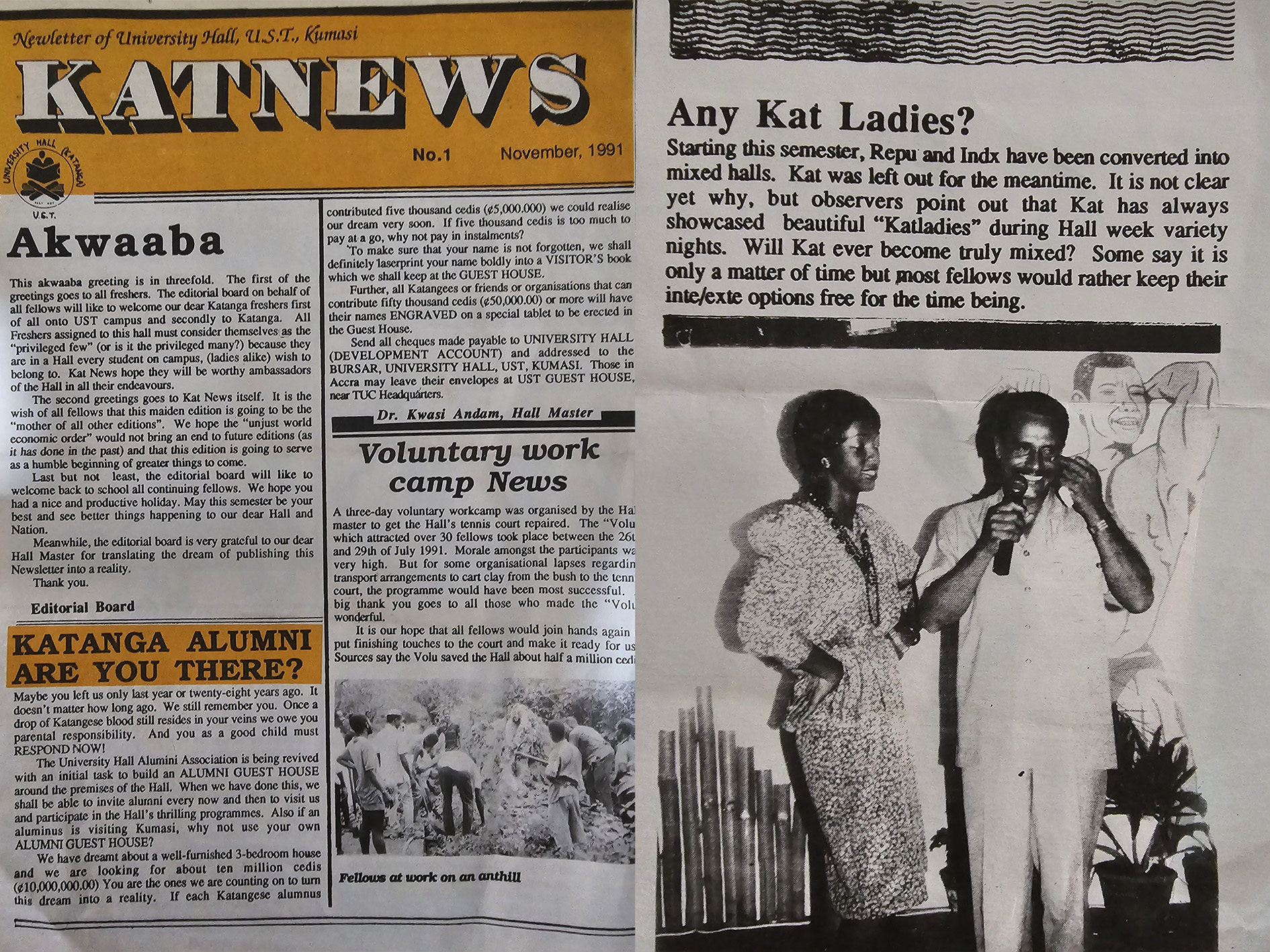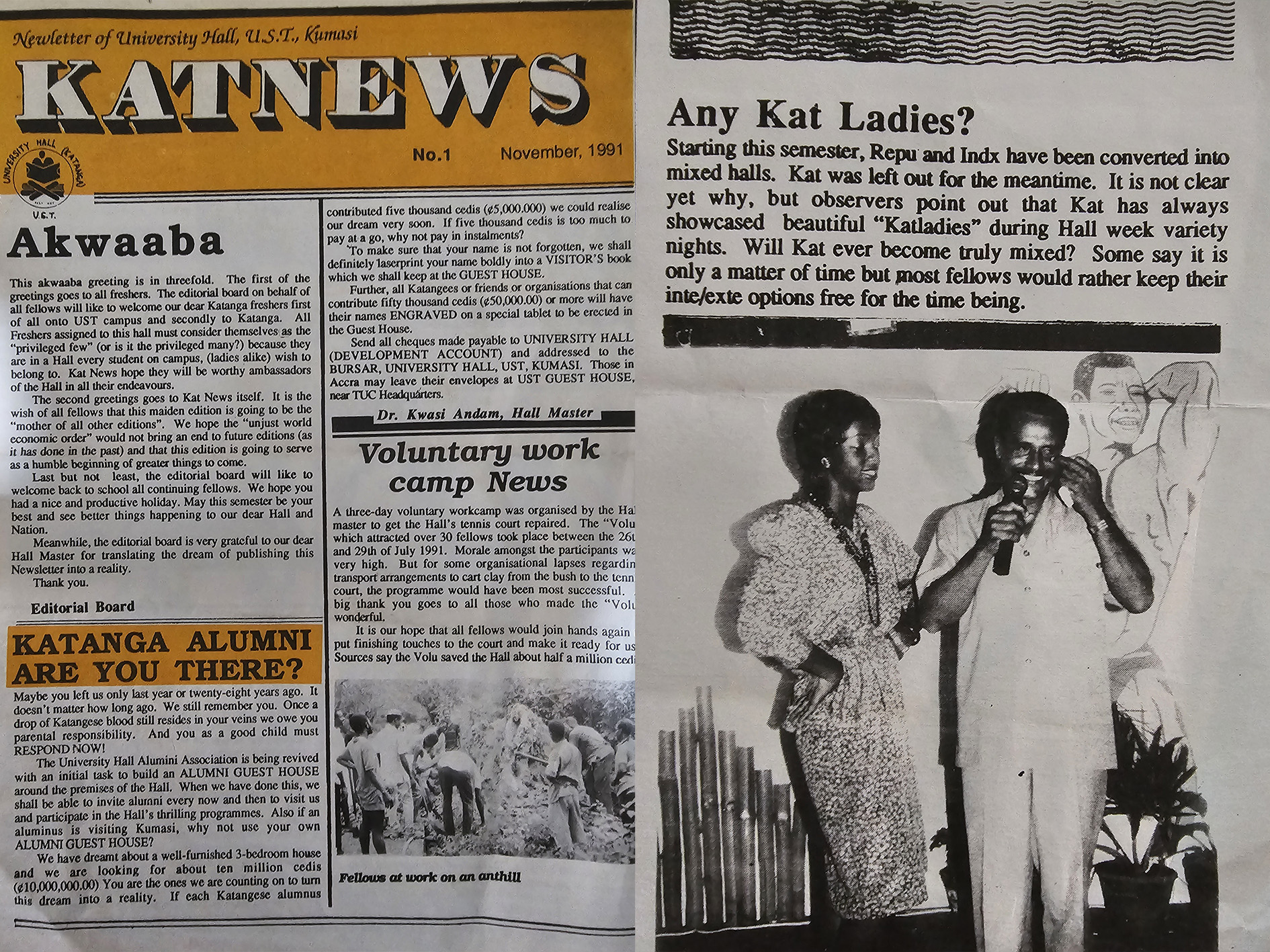A light-hearted question posed in a 1991 KATNEWS article, “Any Kat Ladies?”, captured early reflections on mixed hall conversions at KNUST. Decades later, that question would spark real-world debate and protest as University Hall, traditionally all-male, transitioned to a mixed hall under new accommodation policies. This feature revisits the journey from satire to policy, exploring how KNUST has balanced tradition, inclusion, and change.
In a November 1991 edition of KATNEWS, a newsletter once circulated among residents of University Hall at then University of Science and Technology, Kumasi, a light-hearted question was posed: “Any Kat Ladies?”
This playful headline appeared in the context of policy changes on campus, specifically the conversion of Republic Hall and Independence Hall into mixed-gender residences. At the time, University Hall, popularly known as Katanga, remained an all-male hall.

The article noted humorously, “Kat was left out for the meantime. It is not clear yet why, but observers point out that Kat has always showcased beautiful Katladies during Hall Week variety nights.”
Though satirical in tone, the article touched on an evolving conversation about inclusivity and campus accommodation policies. It posed the question: “Will Kat ever become truly mixed?” This reflected broader institutional discussions that would continue in the years ahead.
Decades later, this question returned to the forefront. During the tenure of Vice-Chancellor Professor Kwasi Obiri-Danso, the University announced a policy change to convert University Hall and Unity Hall into mixed-gender halls of residence. The decision was part of a broader strategy to improve access to accommodation and promote inclusivity within the residential system.
The announcement, however, generated significant responses from students and alumni. Some University Hall alumni staged a peaceful protest in Accra, marching from the Kwame Nkrumah Circle to the Ministry of Education, where they presented a petition. Their placards carried messages such as “Say no to mixed halls” and “Preserve Katanga’s legacy.”
For many, University Hall represents more than just a place of residence. It has historically been associated with a unique student culture marked by camaraderie, tradition, and leadership. Alumni expressed concerns that the transition could affect the hall's identity and heritage.
The University, however, emphasized that the policy was in line with efforts to provide equitable residential access to both male and female students while responding to increasing enrolment numbers.
Management also highlighted the importance of creating an inclusive and respectful campus environment for all.
The situation at KNUST paralleled a similar debate at the University of Ghana in 2010, when proposals to convert Commonwealth Hall, also an all-male hall, into a mixed hall sparked campus dialogue on tradition, policy, and student conduct.
Today, Katanga Hall operates as a mixed hall in line with the University's accommodation policy. While opinions about the change may differ, it reflects the institution’s ongoing commitment to balancing tradition with progress and heritage with inclusion.
As we revisit that 1991 question “Any Kat Ladies?” it is clear that the University community continues to evolve, guided by values of access, respect, and engagement.
| Story by Emmanuel Kwasi Debrah (URO) | |

















